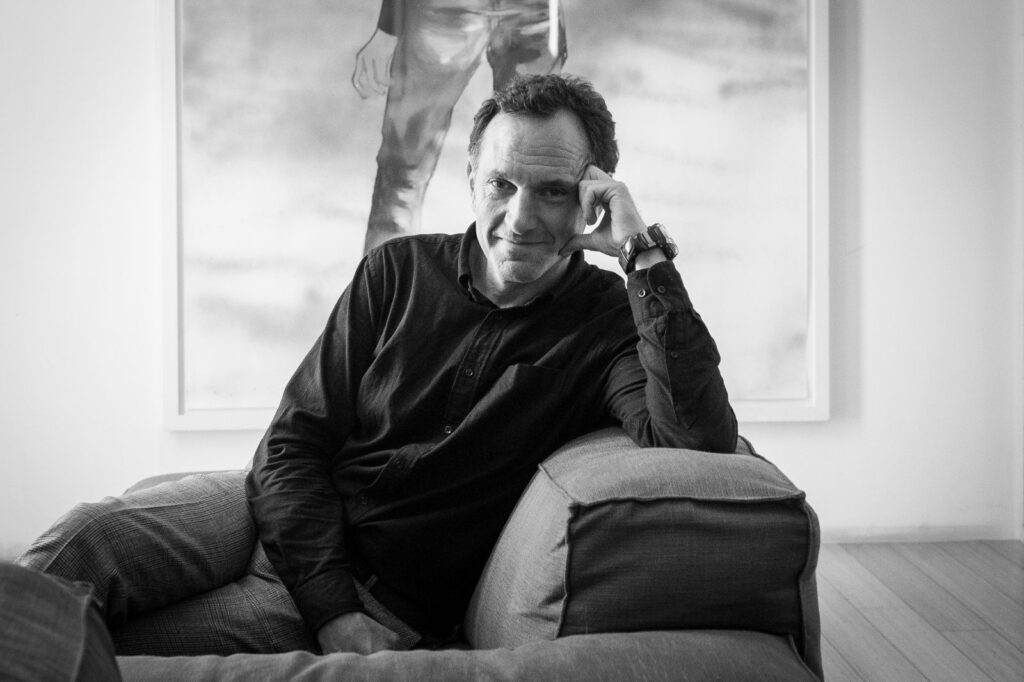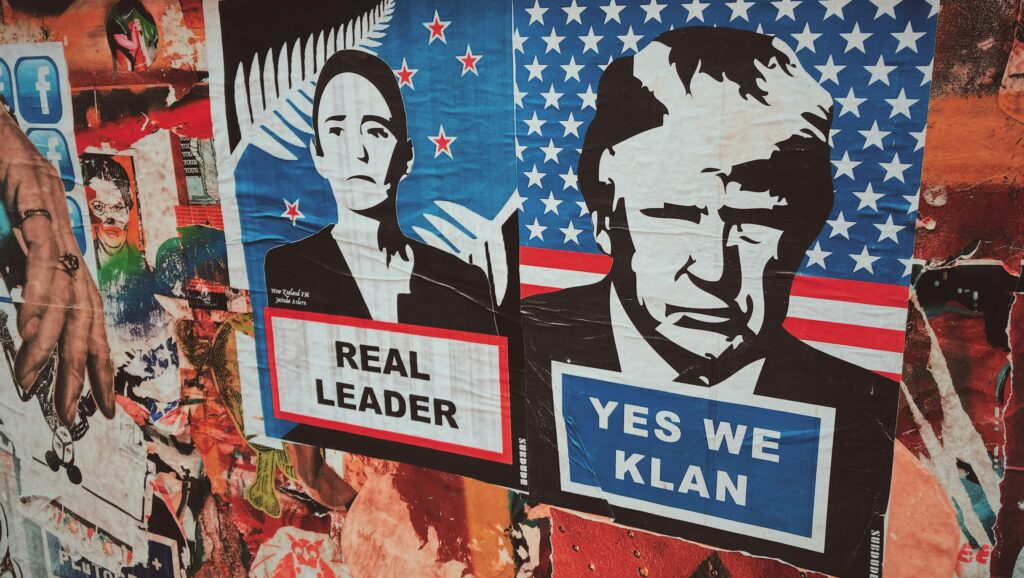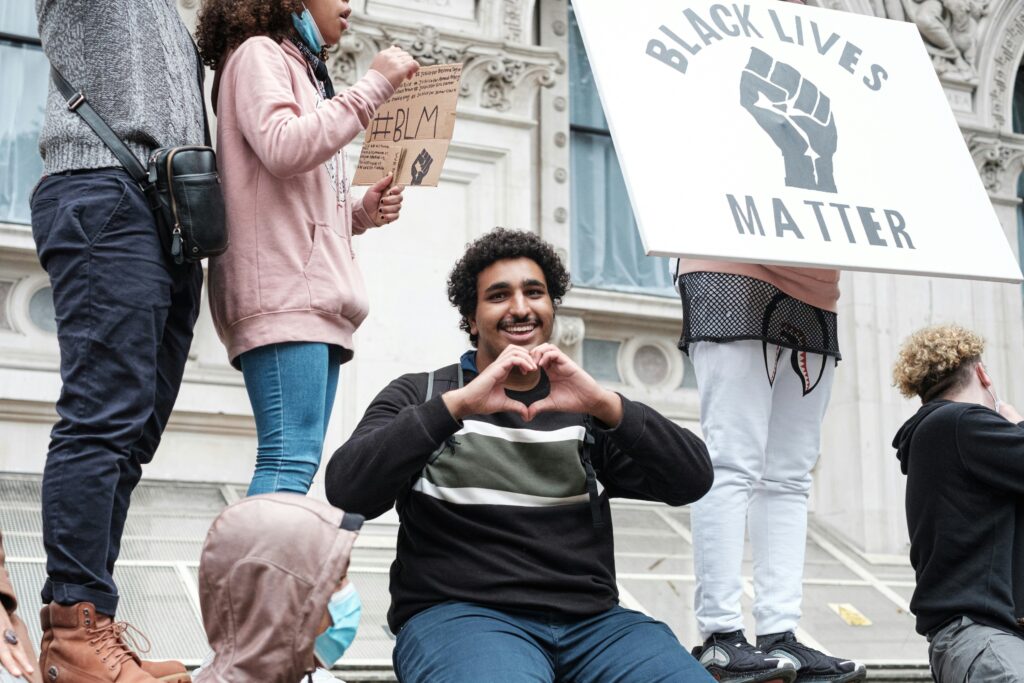There are signs of resilience in democracy around the world. And the health crisis has even, in some respects, encouraged this trend, say Aline Muylaert, Emilie Van Haute, Jean de Renesse and Stephen Boucher in a carte blanche ahead of an online debate on Thursday 19 November.
Democracy is under attack, but democrats are fighting back. A new era for democracy is dawning.
In addition to polarisation, misinformation and autocratic impulses, democracy was also called into question in 2020 by Covid-19. Many governments have turned in on themselves, focusing on the health and economic crises and limiting decision-making to smaller circles of senior civil servants and experts. Many have imposed unprecedented controls on the population. Citizens have seen their ability to express themselves and protest restricted.
Yet 2020 could also prove to be the year when democracy enters a more mature age. Not just because radical right-wing populist leaders like Donald Trump are triggering a healthy counter-reaction. Nor because the EU has sparked a long-overdue discussion on the rule of law and democracy in every EU country on the basis of the Commission’s recent annual audit of the state of the rule of law in the countries.
There are signs of democratic resilience around the world. The Democracy Index has already documented the fact that democratic backsliding has triggered a healthy backlash of citizen participation, from the bottom up, over the past two years. This trend has been reinforced in 2020.
Deliberative democracy goes viral
In 2020, we saw how the concept of regularly inviting citizens to contribute to the development of public policy through occasional or permanent assemblies has become commonplace, from Estonia (re-launching its constitutional process via crowdsourcing), to Belgium (multiple federated entities initiating these assemblies), the UK, France, Australia and beyond. The OECD has identified over 200 recent such processes in which public authorities at all levels of government are turning to citizens’ assemblies, juries, panels and other deliberative processes to tackle complex policy issues. He concludes that we are witnessing a ‘deliberative wave‘, as confirmed by ULB’s own inventory of deliberative processes in Europe.
These participatory and deliberative processes are still in their infancy. In fact, they are far from perfect, both in terms of methodology and the way they are handled by governments. Who decides what subjects will be discussed and how? Which experts speak to the group? How can we ensure that the group’s recommendations are implemented? Are the recommendations sufficiently well-informed? Are the participants truly representative of the population?
The French climate convention, for example, was well prepared and produced highly qualitative recommendations. The retention rate of the diverse sample of 150 citizens recruited was very high. Yet observers will tell you that the process was rushed given the complexity of the issue, that the experts were too close in their thinking and that the government ignored many of the citizens’ recommendations.
However, the fact that so much is being tried is exciting. Governments and organised civil society are experimenting with different facilitation techniques that allow people to have meaningful deliberations, even with social distance. The city of Strasbourg, for example, has developed Phil, a mascot that records people’s opinions in the street, helps maintain social distance while analysing opinions using natural language processing algorithms, and shares them instantly with city councillors and via an open data platform. Others are trying to involve the media in live events and include a wider audience through online contributions. Major efforts are being made, as in Estonia at present, to ensure their impact.
Democracy is learning from these new initiatives, beyond the paradigm of representative democracy. According to Yale professor Hélène Landemore, we are on the way to a new, more complete form of “open democracy”, as citizens “represent and are represented in turn”. Encouragingly, trust in government is improving after many years of erosion.
Democracy innovates through collective intelligence
In addition to the recent and much-publicised concept of deliberation between small groups of citizens chosen at random to reflect the composition of the general population, there are other interesting developments informed by the latest research into the way in which collective intelligence can be mobilised to shape public decisions.
The lockdown debates in London, the citizens’ panels and crowdsourcing of decision-making principles during the crisis, the Ukrainian Covid-related open source procurement initiative, Estonia , the German #WirvsVirus and EU hackathons, or UNESCO’s #DontgoViral crowdsourcing campaign, are all venturing in new directions. Examples like these show how the unfolding crisis is not holding back, but rather encouraging efforts to strengthen the impact of governments through the contributions of as many people as possible. In the years to come, we will see many more ways of combining technology and humans to make smarter decisions.
Liberté Living Lab, Dreamocracy, Policy Lab de SciencePo ULB and CitizenLab are also exploring new forms of interaction between public and private authorities, enabling all types of stakeholders to contribute, online or offline, to public decision-making.
We also see how the teleworking imperative has helped to reinforce new ways of organising and collaborating horizontally, paving the way for even more workplace innovation that will soon spread into the public space. We have all become facilitators of collective intelligence, managing synchronous and asynchronous moments of deliberation and decision-making, helping our colleagues to focus despite logistical challenges, and working much more than before on shared documents allowing several voices to be heard simultaneously.
Democracy is being put to the test. But we can still make it grow.
Originally published in the newspaper Le Soir




